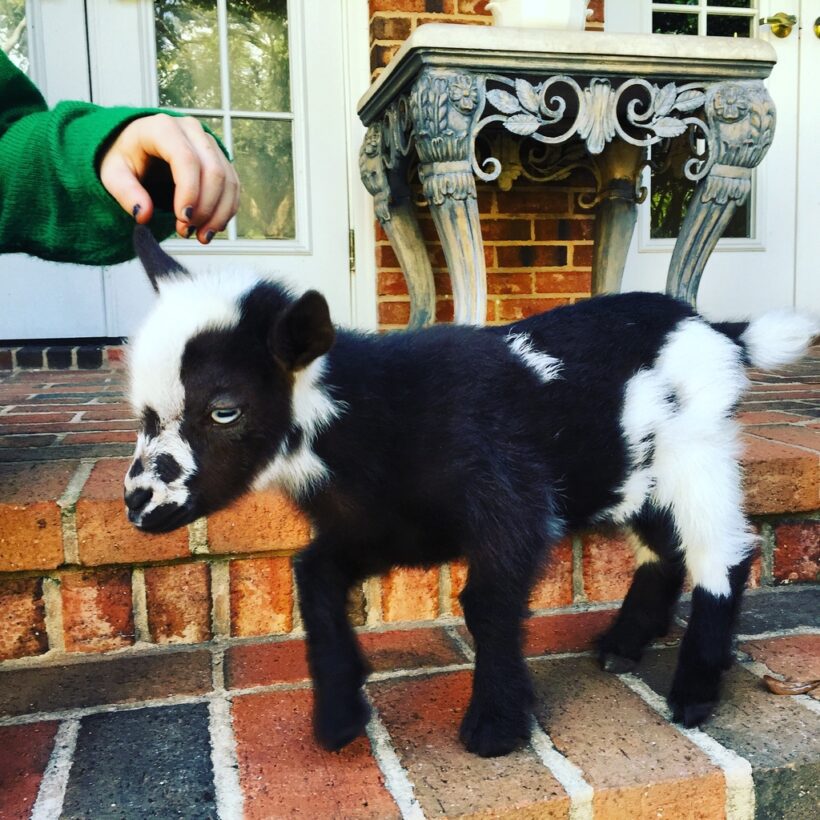Goats are known for their hardiness and adaptability, but like all animals, they can occasionally fall prey to parasites such as fleas.
As a goat owner, you might be wondering if it’s safe to use dog flea treatment on your goats to keep these pesky insects at bay.
In this comprehensive guide, we will explore the safety and effectiveness of using dog flea treatments on goats, discuss alternative options, and provide tips for maintaining a healthy and parasite-free environment for your beloved animals.
So, let’s dive in and unravel the mystery of whether dog flea treatments can be a suitable solution for your goats’ flea problems.
Key Takeaway
| Key Takeaways | Answers |
|---|---|
| Safety of Dog Flea Treatment on Goats | Using dog flea treatment on goats is not recommended due to differences in physiology, size, and metabolism, leading to potential risks and adverse reactions. |
| Flea and Tick Infestations in Goats | Goats can get ticks and fleas like other animals, causing discomfort, irritation, and potential health problems. Regular inspection and proper herd management help prevent infestations. |
| Flea Treatments for Goats | Use goat-specific treatments or veterinarian-approved alternatives such as permethrin-based products, ivermectin, diatomaceous earth, regular grooming, and environmental control. |
| Flea Collars for Goats | Flea collars are not specifically designed for goats, but some livestock owners may use collars intended for larger animals. Consult a veterinarian before using off-label products. |
| Conclusion | Consult with a veterinarian and opt for goat-specific treatments or approved alternatives while maintaining a clean and healthy environment to ensure the safety and well-being of your animals. |
What Is Dog Flea Treatment

Dog flea treatment refers to the various products and methods used to prevent, control, and eliminate fleas in dogs.
Fleas are small, wingless insects that feed on the blood of their hosts, causing discomfort, itching, and potential health issues in dogs.
These treatments play a crucial role in ensuring the well-being of your canine companion and maintaining a healthy environment for both pets and their owners.
There are several types of dog flea treatments available, each with its unique application method and action mechanism.
Some common forms of flea treatments include:
- Topical treatments: These are liquid solutions applied directly to the dog’s skin, usually between the shoulder blades or at the base of the neck. They contain active ingredients that are absorbed into the dog’s bloodstream, killing fleas upon contact. Examples of topical treatments include spot-on products and flea sprays.
- Oral medications: Flea control pills or chewable tablets are given to dogs by mouth, and they work by either killing adult fleas or inhibiting flea reproduction. This type of treatment is typically fast-acting and can provide quick relief from a flea infestation.
- Flea collars: These collars release active ingredients that repel or kill fleas when they come into contact with the dog’s fur and skin. Flea collars provide long-lasting protection, but their effectiveness may vary depending on the brand and quality.
- Shampoos and dips: Flea shampoos and dips are used to bathe dogs, killing fleas on contact. While these treatments can provide immediate relief, their effects are often short-lived, and additional measures may be needed to prevent re-infestation.
- Environmental treatments: In addition to treating your dog, it’s essential to address the flea problem in your home and yard. This may involve using flea sprays, foggers, or powders to kill fleas and their eggs in the environment.
Do Goats Get Ticks And Fleas?

Yes, goats can get ticks and fleas, just like other animals. These parasites can cause discomfort, irritation, and potential health problems for your goats.
While goats are generally hardy creatures, it is essential to monitor them for signs of tick and flea infestations and take appropriate measures to prevent and treat these issues.
Ticks: Ticks are small, blood-sucking arachnids that attach themselves to the skin of animals, including goats. They can transmit diseases such as Lyme disease, anaplasmosis, and babesiosis, which can lead to severe health complications if left untreated. Regularly inspecting your goats for ticks, especially during warmer months when ticks are more active, is crucial in preventing infestations and associated diseases.
Fleas: Fleas are small, wingless insects that feed on the blood of their hosts. Although flea infestations are less common in goats than in other animals like dogs and cats, they can still occur and cause discomfort, itching, and potential allergic reactions. In some cases, heavy flea infestations can even lead to anemia in goats due to excessive blood loss.
To prevent and control tick and flea infestations in goats, it’s essential to practice proper herd management, maintain a clean environment, and use appropriate treatments recommended by a veterinarian.
By staying vigilant and proactive, you can protect your goats from these pesky parasites and ensure their well-being.
Can You Use Dog Flea Treatment On Goats
No, using dog flea treatment on goats is not recommended because of their different physiologies, sizes, and metabolic rates. This can result in unsuitable dosages, adverse reactions, side effects, or even toxicity in goats.
The dosage and formulation of dog flea treatments might not be suitable for goats. Using dog flea treatment on goats can potentially lead to adverse reactions, side effects, or even toxicity.
It’s important to consult a veterinarian for advice on appropriate flea treatments specifically designed for goats or approved alternative options.
There are products available on the market that are specifically formulated for use in livestock, including goats, and these would be a safer choice.
To prevent and control flea infestations in goats, focus on proper herd management, maintain a clean environment, and follow your veterinarian’s recommendations regarding appropriate treatments and preventative measures.
This approach will ensure the safety and well-being of your goats while effectively addressing any flea-related issues.
What Can You Use For Fleas on Goats?
To treat fleas on goats, it’s crucial to use appropriate products specifically designed for goats or approved by a veterinarian.
Some options for treating and preventing fleas in goats include:
- Permethrin-based products: Permethrin is a synthetic pyrethroid that is effective against fleas and other external parasites. Choose a product labeled for use on goats and follow the manufacturer’s instructions for application and dosage.
- Ivermectin: Ivermectin is an antiparasitic drug that can be used to treat various parasites in goats, including fleas. Consult your veterinarian for proper dosage and administration guidelines. It may vary depending on the goat’s age, weight, and health status.
- Diatomaceous earth: Food-grade diatomaceous earth can be used as a natural alternative to control fleas in goats. Sprinkle it on the goat’s coat and bedding to help eliminate fleas. However, its effectiveness may be limited compared to chemical treatments.
- Regular grooming and inspection: Regularly groom your goats using a fine-toothed comb to remove any fleas and their eggs. Inspect your goats frequently to identify and address flea infestations early.
- Environmental control: In addition to treating your goats, it’s essential to address the flea problem in their living environment. Keep the goat’s bedding, barn, and surrounding areas clean and dry. Use appropriate insecticides or natural alternatives like diatomaceous earth to eliminate fleas in the environment.
Proper herd management and maintaining a clean environment are also crucial in preventing flea infestations in goats.
Do They Make Flea Collars For Goats?
Flea collars are not specifically designed for goats, as they are more commonly used for pets like dogs and cats.
However, some livestock owners may use flea and tick collars intended for larger animals, such as cattle or horses, on their goats as an off-label or alternative method to control external parasites.
It’s essential to consult with a veterinarian before using any off-label products, including flea collars, on your goats.
Your veterinarian can recommend suitable treatments specifically designed for goats or approved alternatives that are safe and effective for controlling fleas and other external parasites in your animals.
Remember that proper herd management and maintaining a clean environment are crucial in preventing flea infestations in goats.
By following your veterinarian’s advice and implementing preventative measures, you can ensure the well-being of your goats and protect them from harmful parasites.
In Conclusion
To sum it up, while it might be tempting to use dog flea treatment on goats due to its accessibility and familiarity, it is not recommended as the ideal solution.
The differences in physiology, size, and metabolism between dogs and goats can lead to potential risks and adverse reactions.
Instead, it’s crucial to consult with a veterinarian and opt for goat-specific treatments or approved alternatives to ensure the safety and well-being of your animals.
Maintaining a clean and healthy environment, practicing proper herd management, and keeping an eye out for early signs of flea infestations are essential steps in preventing and controlling parasites in your goats.
With the right approach and dedication to their care, you can protect your goats from fleas.





Leave a Reply